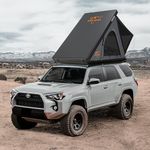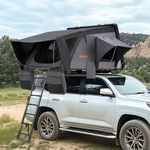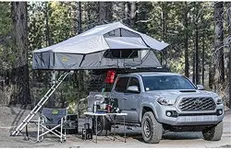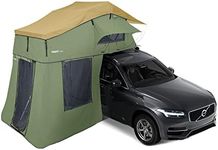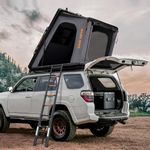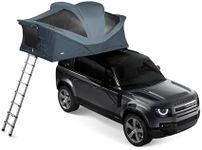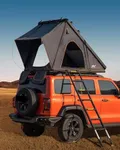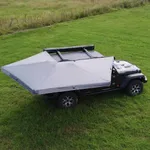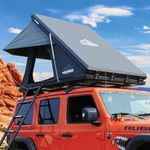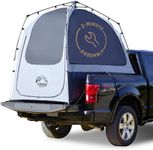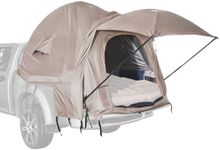Buying Guide for the Best Rooftop Tents
Choosing the right rooftop tent can significantly enhance your camping experience by providing comfort, convenience, and safety. When selecting a rooftop tent, it's important to consider various factors that will affect your overall satisfaction and usability. Here are some key specifications to consider and how to navigate them to find the best fit for your needs.Size and Sleeping CapacityThe size and sleeping capacity of a rooftop tent determine how many people can comfortably sleep inside. This spec is crucial because it directly impacts your comfort and the suitability of the tent for your group. Rooftop tents typically come in sizes that accommodate 2 to 4 people. If you are a solo traveler or a couple, a 2-person tent might be sufficient. For families or groups, a larger tent that can sleep 3 to 4 people would be more appropriate. Consider the number of people who will be using the tent regularly and choose a size that provides enough space for everyone to sleep comfortably.
WeightThe weight of a rooftop tent is important because it affects your vehicle's handling and fuel efficiency. Rooftop tents can range from lightweight models around 100 pounds to heavier ones exceeding 200 pounds. If you have a smaller vehicle or plan to frequently remove and install the tent, a lighter model might be more suitable. For larger vehicles or if the tent will remain mounted for extended periods, a heavier tent with more features might be acceptable. Always check your vehicle's roof load capacity to ensure it can safely support the weight of the tent.
Material and DurabilityThe material and durability of a rooftop tent determine how well it can withstand various weather conditions and how long it will last. Common materials include canvas, polyester, and ripstop fabric. Canvas is durable and breathable but heavier, while polyester is lighter and more water-resistant. Ripstop fabric offers a good balance of durability and weight. If you plan to camp in harsh weather conditions, opt for a tent made from high-quality, durable materials. For occasional use in mild conditions, a lighter, less expensive material may suffice.
Setup and InstallationThe ease of setup and installation is a key factor, especially if you plan to move frequently. Some rooftop tents are designed for quick and easy setup, often taking just a few minutes, while others may require more time and effort. Hard-shell tents typically offer faster setup times compared to soft-shell tents. If you value convenience and plan to set up camp frequently, look for a tent with a simple and quick setup process. For longer stays at a single location, a more complex setup might be acceptable.
Ventilation and Weather ResistanceVentilation and weather resistance are crucial for comfort and safety. Good ventilation helps prevent condensation and keeps the interior comfortable, while weather resistance ensures you stay dry and protected from the elements. Look for tents with multiple windows, mesh panels, and rainfly options. If you plan to camp in hot or humid climates, prioritize ventilation features. For camping in rainy or windy conditions, ensure the tent has robust weatherproofing features like a durable rainfly and sealed seams.
Additional FeaturesAdditional features can enhance your camping experience by providing extra comfort and convenience. These may include built-in mattresses, annexes for extra living space, LED lighting, and storage pockets. Consider what features are important to you based on your camping style and needs. For example, if you value comfort, a built-in mattress might be essential. If you need extra space for gear or activities, an annex could be beneficial. Choose a tent with features that align with your priorities and enhance your overall camping experience.
